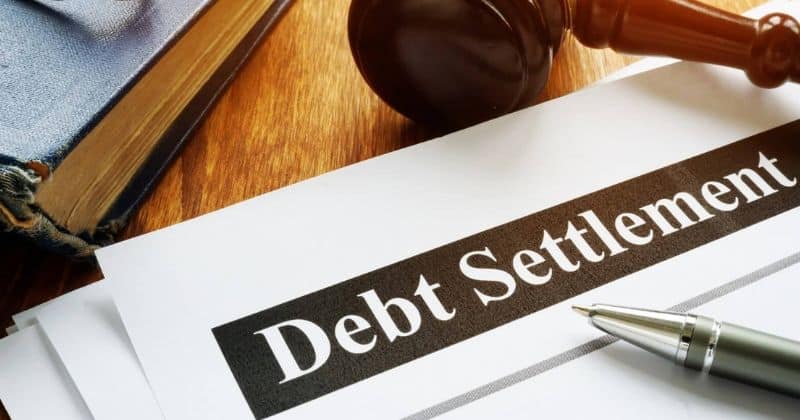What Is Debt Settlement?

Debt is an overwhelming financial burden for many individuals, especially when multiple unsecured loans or credit card bills pile up. Often, it can feel like a never-ending cycle of minimum payments and accumulating interest. For those looking for a way out, debt settlement can be a viable solution to reduce and manage debt. In this article, we will explore the concept of debt settlement, its advantages and drawbacks, and how services like RupeeRelief can assist individuals in navigating the process. Debt settlement is the process of negotiating with creditors to pay off a debt for less than what is owed. The goal is to reach a settlement agreement where the creditor agrees to accept a lower lump sum payment to satisfy the debt, rather than requiring the full balance to be paid. Debt settlement is typically sought by individuals who are facing financial hardship and cannot afford to pay off their debts in full. Unlike debt consolidation, where multiple debts are combined into a single loan, or debt management, where the creditor continues to receive monthly payments, debt settlement aims to reduce the total amount of debt owed. It is most commonly used for unsecured debts like credit card bills, personal loans, medical bills, and payday loans. The process of debt settlement involves several steps, and it is often done with the assistance of a professional debt settlement service. Here is an overview of how debt settlement typically works: The first step is to evaluate your financial situation, including the total amount of debt, your income, and your ability to make payments. A debt settlement service or expert will help you determine if you are a good candidate for debt settlement. Once you decide that debt settlement is the right option for you, it’s time to choose a reputable service to help with negotiations. Many companies, such as RupeeRelief, specialize in guiding individuals through the debt settlement process. These services often have established relationships with creditors, which can help expedite negotiations. Debt settlement services typically negotiate with your creditors to reduce the overall debt. This involves offering a lump sum payment that is lower than what is owed. Creditors may agree to a settlement if they believe it is the best option to recover some portion of the debt, rather than risk receiving nothing if the borrower defaults. Once the creditor agrees to the negotiated amount, the debt is settled, and the borrower is no longer liable for the remaining balance. This can provide significant relief, especially for individuals who were previously unable to make their minimum payments. The borrower typically pays the settlement amount in a lump sum or in a series of payments. It is essential to make these payments on time to avoid any issues or additional fees. Once the settlement is paid, the borrower’s debt is considered resolved. Debt settlement offers several benefits for individuals struggling with excessive debt: The most obvious benefit is that debt settlement can significantly reduce the amount of debt owed. In many cases, creditors are willing to accept less than the full amount owed, allowing individuals to pay off their debts for a fraction of the original amount. Debt settlement can serve as an alternative to bankruptcy, which can have long-lasting effects on an individual’s credit score and financial future. It offers a chance to resolve debt without the legal complexities and consequences of filing for bankruptcy. Settling your debts can bring immediate relief, especially for those who are struggling with high-interest rates, late fees, and the emotional stress that comes with being in debt. It allows individuals to regain control of their finances and move forward. If you are being harassed by creditors or debt collectors, debt settlement can help bring that to an end. Once a settlement agreement is in place, the creditor typically stops contacting you for payments. While debt settlement can initially have a negative impact on your credit score, it can eventually improve your financial standing by reducing outstanding debts. Over time, your credit score can improve as you begin to rebuild your credit history by making responsible payments. While debt settlement can be an effective solution for many, it is not without its risks and drawbacks. It is important to carefully consider the potential downsides before deciding to pursue debt settlement. One of the most significant disadvantages of debt settlement is the negative impact it can have on your credit score. Settling a debt for less than the full amount owed will typically be reported to the credit bureaus, resulting in a lower credit score. However, the long-term benefits of being debt-free may outweigh this short-term setback. Debt settlement services often charge fees for their services, which can be significant. These fees are typically a percentage of the amount of debt being settled, and they can add up quickly. It is essential to understand the fee structure before committing to a settlement program. In some cases, the amount of debt that is forgiven through settlement may be considered taxable income. This means that you may be required to pay taxes on the forgiven debt, potentially leading to an unexpected tax liability. It is important to consult with a tax professional to understand the tax implications of your settlement. While many creditors may be willing to negotiate a settlement, there is no guarantee that all creditors will agree. Some creditors may prefer to pursue other options, such as litigation, rather than settle for less than the full amount owed. This can complicate the settlement process and may leave some debts unresolved. Although debt settlement can reduce the amount of debt owed, it may take longer to pay off the settlement amount compared to other options like debt consolidation. This extended timeline can delay your financial recovery. Services like RupeeRelief play a crucial role in helping individuals navigate the complex process of debt settlement. RupeeRelief specializes in offering professional assistance to people burdened with unsecured loans, credit card debts, and other financial challenges. With their expertise and established relationships with creditors, they can negotiate settlements that reduce the total amount owed. RupeeRelief works closely with clients to evaluate their financial situation, develop a customized plan for debt settlement, and communicate directly with creditors to reach favorable settlement agreements. Their services are designed to simplify the process and reduce the stress associated with managing overwhelming debt. By choosing a trusted debt settlement service like RupeeRelief, individuals can gain access to expert advice, negotiate better settlement terms, and ultimately achieve financial freedom. Debt settlement can be a lifeline for those overwhelmed by unsecured debt. It offers a way to reduce the amount owed, avoid bankruptcy, and regain control of finances. However, it is important to weigh the pros and cons of debt settlement, as it may have negative impacts on credit scores and involve additional fees. If you find yourself struggling with debt, consider seeking help from a trusted debt settlement service like RupeeRelief. Their expertise and negotiation skills can help you reach a debt settlement that provides relief and a path to financial recovery. By taking the first step towards resolving your debt, you can move closer to a debt-free future.What is Debt Settlement?
How Does Debt Settlement Work?
1. Assessing the Debt Situation
2. Choosing a Debt Settlement Service
3. Negotiating with Creditors
4. Settling the Debt
5. Paying the Settlement Amount
Advantages of Debt Settlement
1. Reduced Debt
2. Avoiding Bankruptcy
3. Debt Relief
4. Stopping Creditor Harassment
5. Improved Credit
Disadvantages of Debt Settlement
1. Negative Impact on Credit Score
2. Fees and Costs
3. Tax Implications
4. Not All Creditors Agree to Settle
5. Longer Repayment Timeline
How RupeeRelief Can Help
Conclusion

